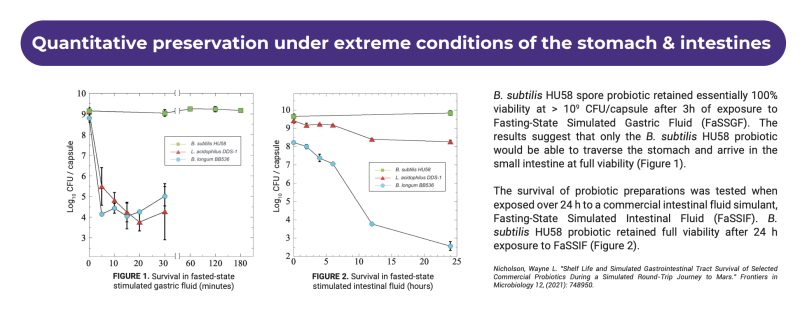The study aimed to assess the survival of three commercial probiotics (Bifidobacterium longum BB536, Lactobacillus acidophilus DDS-1, and Bacillus subtilis HU58) under conditions similar to a 3-year voyage to Mars. The probiotics were freeze-dried in capsules with a high colony-forming unit count. Radiation exposure had minimal effects on the probiotic strains. However, the shelf lives and survival during simulated upper GI tract conditions varied significantly among the strains. Only the spores of Bacillus subtilis showed resilience, surviving all conditions and maintaining a high spore count, suggesting that probiotics containing bacterial spores could be a suitable option for long-duration human space travel.

When selecting probiotics for long-duration human missions beyond Earth’s protective magnetosphere, two critical factors to consider are their ability to maintain viability and potency during long-term storage under ambient conditions and chronic exposure to low-dose radiation. In a study assessing three commercial probiotics for a 3-year mission to Mars, freeze-dried spores of Bacillus subtilis demonstrated superior viability compared to freeze-dried Bifidobacterium longum and Lactobacillus acidophilus cells.
However, classic probiotic organisms should not be disregarded, as recent research indicates that inactivated microbes (postbiotics) can still have beneficial health effects. Alongside shelf-life, other factors such as the impact on the GI microbiome and astronaut health, optimal probiotic species or combinations, and performance in realistic conditions must be considered for the successful selection of probiotics for a Mars mission.














